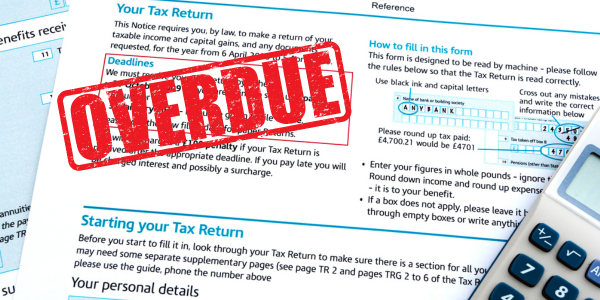How to help your child fund university
Managing the costs of university fees while living away from home can be an overwhelming as well as expensive prospect. For students and parents alike, one way that university students fund their education is by applying for a student loan.
There are two types of loans – one that covers tuition fees and one that covers your living expenses while at university, such as rent, food and other bills.
While the majority of students will be eligible for the full amount to cover tuition fees, maintenance loans are means tested and depend upon the student’s existing household income. The level of maintenance loan is tapered depending on the excess of household residual income over £25,000.
This means that some students might not get as much as others while attending university, even if their parents or carers are unable to help by providing additional funds. To find out how much maintenance loan you might be entitled to, use the government’s student finance calculator.
How can you help your child to fund university?
Not everyone will have spare funds to support their child through university. However, if your child will be receiving a reduced maintenance loan, you may wish to do so.
Parents commonly top up maintenance loans with cash payments, but there are a number of other tax-efficient ways that parents can provide financial support to children studying at university:
If you already own a business, then consider employing your child during the holidays. This will enable them to earn money towards their living expenses and allow you to benefit from tax relief on the salary you pay them.
The cost of renting accommodation while at university is a substantial part of any student’s outgoings. If, as a parent, you are in a position to purchase a property, then it is worth considering investing funds, that would have otherwise been put towards renting, into suitable accommodation nearby instead.
Any spare rooms can then be rented out to other students, enabling you to cover the mortgage repayments and create a long-term investment for the future. Additionally, any income and gain made on the property could be tax free if structured correctly in your child’s name.
Other practical steps you can take to help a child at university
Loans aren’t the only source of funding for university students. Scholarships, grants and bursaries are also available for all sorts of reasons – not just for the disadvantaged or academically gifted. To find out more you can take a look at the charitable organisation, The Scholarship Hub.
If you or another family member are considering gifting money, then using a trust can provide long-term inheritance tax benefits for families. For further advice about trusts, speak to a trust planning specialist, such as Perrys Chartered Accountants.
The facts about student loans. Below, we’ve listed some of the essentials university goers will need to know about student loans. You can find out more information on the government’s website here.
Who is eligible to apply for a student loan?
Student loans are available to eligible students to cover tuition fees and living costs. Getting a student loan is dependent on:
- Your university or college
- Your course
- If you’ve studied a higher education course before
- Your age
- Your nationality or residency status
The rules vary for full-time students, part-time students and whether you’ve studied before. However, you will be eligible for full support if all of the following apply:
- You’re a UK national, Irish citizen or have ‘settled status’
- You normally live in England
- You’ve been living in the UK, the Channel Islands or the Isle of Man for 3 consecutive years before the first day of the first academic year of your course (temporary absences, such as holidays, are not included in this)
More detailed information about eligibility criteria is available on the Who qualifies? page of the government website.
How do I apply for a student loan?
There are a variety of criteria depending on where you live and whether you have studied before. However, most students living in England can apply online via Student Finance England.
To do this, you will need to set up a student finance online account and complete the online application. You may be required to include your household income and send proof of identity.
Finance is awarded on a year-by-year basis. Therefore, if you are a student continuing with your studies either for the next year of the course, repeating a year or transferring to a new course, then you will need to log in to your student finance account to apply for further finance.
Students returning to their studies after a break for personal reasons will also be required to reapply via their student finance account. The full rules relating to returning students are available on the government’s apply for student finance web page.
There are different processes for students in Scotland, Wales and Northern Ireland.
When can I apply for a student loan?
Eligible students can currently apply online for the academic years covering 2022 to 2023 and 2021 to 2022.
You can apply for funding up to 9 months after the first day of the academic year for your course. This means if your course started between 1 August and 31 December you will have until 31 May after your course started to apply for a loan.
Do I need to have a confirmed place to apply?
No, you do not need to have a confirmed place. However, it is prudent to apply as soon as possible to ensure you have the funding available to you once your university or college place has been confirmed.
What proof of identity do I need to apply for a student loan?
You will need a UK passport or, if you do not have one of these, you can upload a copy of your birth or adoption certificate to your student finance account or send it by post to Student Finance England.
For EU students, you will need to provide your share code to prove your immigration status and identity. More information about this can be found on the government’s View and prove your immigration status web page.
What happens to my student loan when I finish studying?
When you finish studying, you will be given a student loans repayment account by the Student Loans Company (SLC).
There are four repayment plans and the amount you repay will depend on which plan you’re on. However, you cannot choose this plan. Instead, it will depend upon your individual eligibility criteria.
You can find out more information about the different student loan repayment plans on the government’s web page Which repayment plan you’re on.
When do I start repaying my student loan?
You will not need to start repaying your student loan until you are earning the minimum amount, according to the plan you’re on. This will be £20,195 per annum for Plan 1, £27,295 per year for Plan 2, £25,375 per year for Plan 4 and £21,000 per year for Postgraduate Loan repayment plans. All amounts are before tax and other deductions.
How do I repay my student loan?
Once you meet the repayment criteria according to your student loan plan, then, if you are an employee, your repayments will be taken out of your salary at the same time as tax and National Insurance. Your payslips should show how much has been deducted.
If you’re self-employed, HMRC will work out how much you pay according to your tax return. You will pay this at the same time as any tax you owe.
Can I make extra repayments for my student loan?
Yes. It’s possible to make additional payments to your student loan, or you can pay it off early. There’s no penalty for doing this.
Can I get a refund for my student loan?
If you’ve paid more than the total amount owed, your annual income was below the threshold for the student loan plan you’re on, you started making repayments before you needed to or you’ve repaid more than you need to because you were on the wrong plan, then you can contact SLC to ask for a refund. You can do this via Twitter, Facebook or over the phone.
You cannot get refunds if you have chosen to make extra payments.
What happens if I cannot pay back my student loan in full?
Depending on the student loan plan you’re on, your student loan will be written off after a specific amount of time has passed. For Plan 1 this will be when you’re 65, or 25 years after the April you were first due to repay. For Plan 2, loans are written off 30 years after the April you were first due to repay. Plan 4 loans will be written off when you’re 65, or 30 years after the April you were first due to repay. Postgraduate loans will be written off 30 years after the April you were first due to repay.
If you claim certain disability benefits, SLC may be able to cancel your loan. You will need to provide evidence of this to them, such as a letter from a benefits agency.








